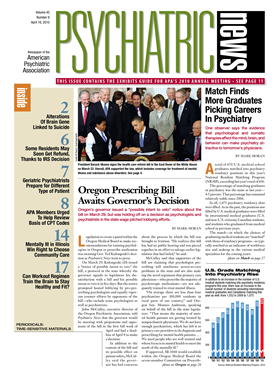People who have narcolepsy may experience social anxiety or panic attacks, a new study finds.
The study was headed by Hal Droogleever Fortuyn, M.D., an associate professor of psychiatry and head of the psychosomatic service at Radboud University Nijmegan Medical Center in the Netherlands. Study results appeared in the January-February General Hospital Psychiatry.
The study included 60 subjects with narcolepsy and 120 age- and gender-matched controls. Each subject was evaluated for DSM-IV-TR mood and anxiety disorders with a reliable and valid diagnostic instrument, the Schedules for Clinical Assessment in Neuropsychiatry.
The narcolepsy subjects were not found to be any more prone to major depression or other types of mood disorders than controls were. But they were 16 times more likely to have an anxiety disorder—especially social anxiety or panic attacks—than were control subjects. The results held firm even when some possibly confounding factors such as age, gender, duration of illness, and medication use were considered.
Narcolepsy subjects' social anxiety could well result from a fear of falling asleep in public, and their panic attacks from a fear of losing control over their bodies, Droogleever Fortuyn told Psychiatric News.
Also, the primary pathophysiology of narcolepsy could contribute to their social anxiety and panic, he said. Narcolepsy is known to be caused by deficiencies in hypocretin, a chemical produced by the hypothalamus that helps control levels of wakefulness, and a study reported in the December 27, 2009, Nature Medicine found that human subjects experiencing panic anxiety had elevated levels of hypocretin in their cerebrospinal fluid compared with subjects not experiencing it.
So what can be done to help narcolepsy patients who suffer from social anxiety or panic attacks? “As far as I know, there have been no studies concerning treatment of panic attacks and social anxiety in the narcolepsy population,” Droogleever Fortuyn said. He has had experience treating this population for panic and anxiety, but the results were far from clear cut, he said. For instance, 43 percent of the subjects in this study were taking either SSRI or tricyclic antidepressants for cataplexy, but the medications did not protect them from anxiety or panic. And in the three subjects receiving the SNRI antidepressant venlafaxine, “there was a positive link between venlafaxine and occurrence of panic attacks.”
The study was funded by the Dutch Organization for Scientific Research, Dutch Prevention Foundation, and Dutch Ministry of Health, Welfare, and Sport.
